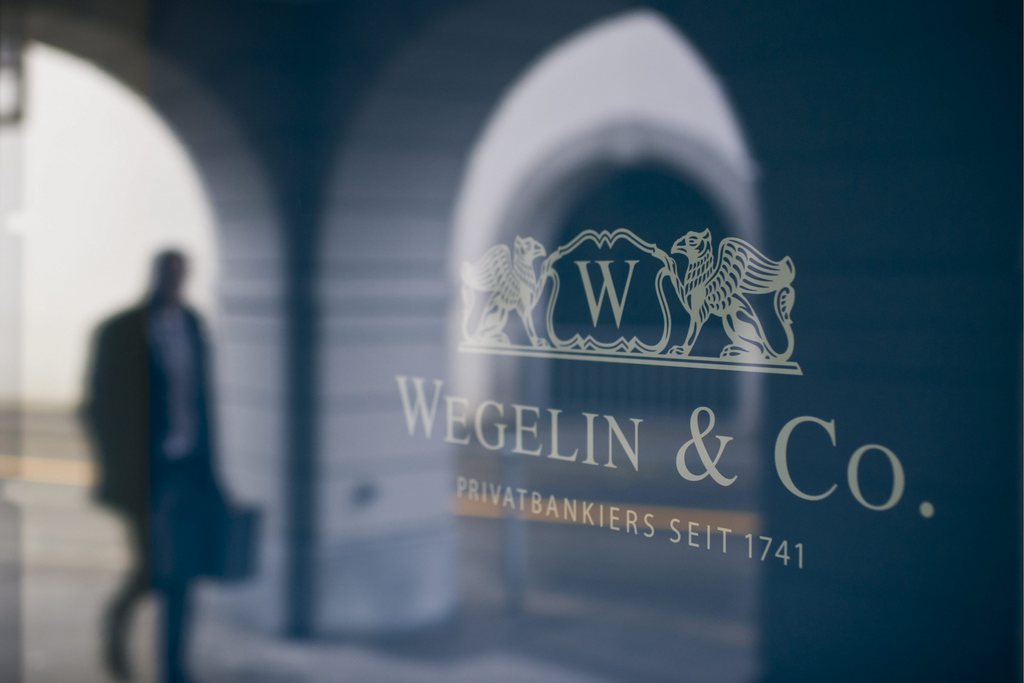US court orders oldest Swiss bank to pay up

A United States court has sentenced Switzerland’s oldest private bank, Wegelin, to pay $74 million (CHF69.5 million) for aiding tax evasion. This is the first such US indictment of a foreign bank.
Judge Jed S. Rakoff handed down the sentence on Monday afternoon in a Manhattan courtroom, taking into account the requests of both the prosecutor and the bank in setting the amount to be paid.
“Wegelin has now paid a steep price for aiding and abetting tax fraud that should be heeded by other banks, bankers, and advisers who engage in the same conduct,” Manhattan US Attorney Preet Bharara said in a statement. “US taxpayers with undeclared accounts – wherever those accounts may be – should know that their bank may be next, and they should pay what they owe the IRS [US Internal Revenue Service] before we come find them.”

More
Wegelin private bank pleads guilty
Wegelin’s case marks the first time a foreign bank has been convicted in such a case in the US. The US government filed conspiracy and fraud charges against Wegelin in February 2012 in connection with having helped Americans hide at least $1.2 billion from the IRS.
Federal authorities said Wegelin bankers began pursuing US clients of UBS once the Justice Department’s probe of that bank became public in 2008.
At the end of 2012, Wegelin sold a large part of its business to the Raffeisen Group. On January 3, Wegelin pled guilty to the charges and agreed to a multi-million dollar fine. In return, the criminal case was dropped and both sides waived the possibility of appeal.
The sentence handed down to Wegelin on Monday requires the bank to pay reparations for allegedly untaxed income of $20 million and $15.8 million in profits the bank made from US tax evaders.
In addition, the sum included a fine of $22.05 million and $16.3 million related to a correspondent Wegelin account found at UBS and confiscated by the US Justice Department.
The bank must pay its entire fine within three days. To ensure payments are made, the judge issued a probationary period of one month.
UBS was the first bank to come under observation from the US Internal Revenue Service (IRS). In 2009, UBS had to pay a $780 million fine for aiding tax evasion.
In 2010, the Swiss government came to an agreement with the US which involved sending the names of 4,500 American UBS clients to the IRS. The agreement was ratified by parliament in 2010.
Tax amnesty legislation in the US has led around 30,000 tax evaders to declare assets hidden in overseas banks. The US Justice Department has gathered significant evidence against Swiss banks which helped hide such assets.
In 2011, US officials opened investigations into ten Swiss banks regarding tax evasion, including Credit Suisse.
Several lawyers and bank workers have since been arrested or charged in the US with aiding tax evasion. Three managers from Wegelin were among them.
At the end of 2012, Wegelin sold a large part of its business to the Raffeisen Group. A few days later, the US Justice Department charged Wegelin with aiding and abetting tax evasion.
It was the first time that such charges were brought against a foreign bank in the US and the first time such a case went to court.
At the end of 2011, the US Justice Department demanded bank client data relevant to American business from all Swiss banks, including the names of bank employees and of tens of thousands of clients.
After having first spoken out against giving up the data, the Swiss government gave the green light for its transfer in April 2012, unleashing a massive controversy across the country.
Switzerland and the US have long been searching for a negotiated global solution to their tax evasion issue.
Legal jurisdiction?
“To me, what justifies this deal – which is what it is – is the practical reality that it would have been difficult for the government to have obtained jurisdiction over the bank,” Rakoff said before he handed down the sentence. “Some credit has to be given to the bank for coming forward in those circumstances.”
Prior to announcing his decision, Rakoff had negotiated the sentence with both sides. The judge nonetheless expressed his surprise that while the Justice Department had accused the bank of being “extremely intentional” in its aiding of tax evaders, prosecutors did not insist on the maximum fine.
Wegelin’s $74 million fine represented about 12 per cent of the CHF560 million it earned when it sold the largest part of its holdings to Raffeisenbank. “Not much pain there, is there?” the judge remarked.
Although Otto Bruderer, the Wegelin representative present at the sentencing, did not make a statement, the bank noted in a press release its “satisfaction” that the judge had stuck to the fine and compensation amounts agreed upon with the prosecutor.
“With this ends the tradition of the private bank Wegelin & Co., founded in 1741,” the release stated. It also noted that all banking operations would be discontinued and all remaining tasks would be carried out by a special entity.
More Swiss banks in the crosshairs
The case against Wegelin is part of a massive US effort against tax evasion begun in 2007 with an investigation into UBS.
However, the Wegelin sentence has not ended Swiss banks’ relationships with the US Justice Department. Investigations into 10 more banks, including Credit Suisse and the Zurich and Basel cantonal banks, are ongoing.
A case against three Wegelin account managers is also still pending, a spokesperson for the prosecutor said after Monday’s sentencing.
Recent pressure on Swiss banking secrecy has not only increased from the US but also from the European Union and international bodies like the Organisation for Economic Co-operation and Development (OECD).
Switzerland has felt compelled to respond to international pressure and negotiate over issues that were previously considered “non-negotiable”.
(Translated from German by Veronica DeVore)

In compliance with the JTI standards
More: SWI swissinfo.ch certified by the Journalism Trust Initiative










You can find an overview of ongoing debates with our journalists here . Please join us!
If you want to start a conversation about a topic raised in this article or want to report factual errors, email us at english@swissinfo.ch.